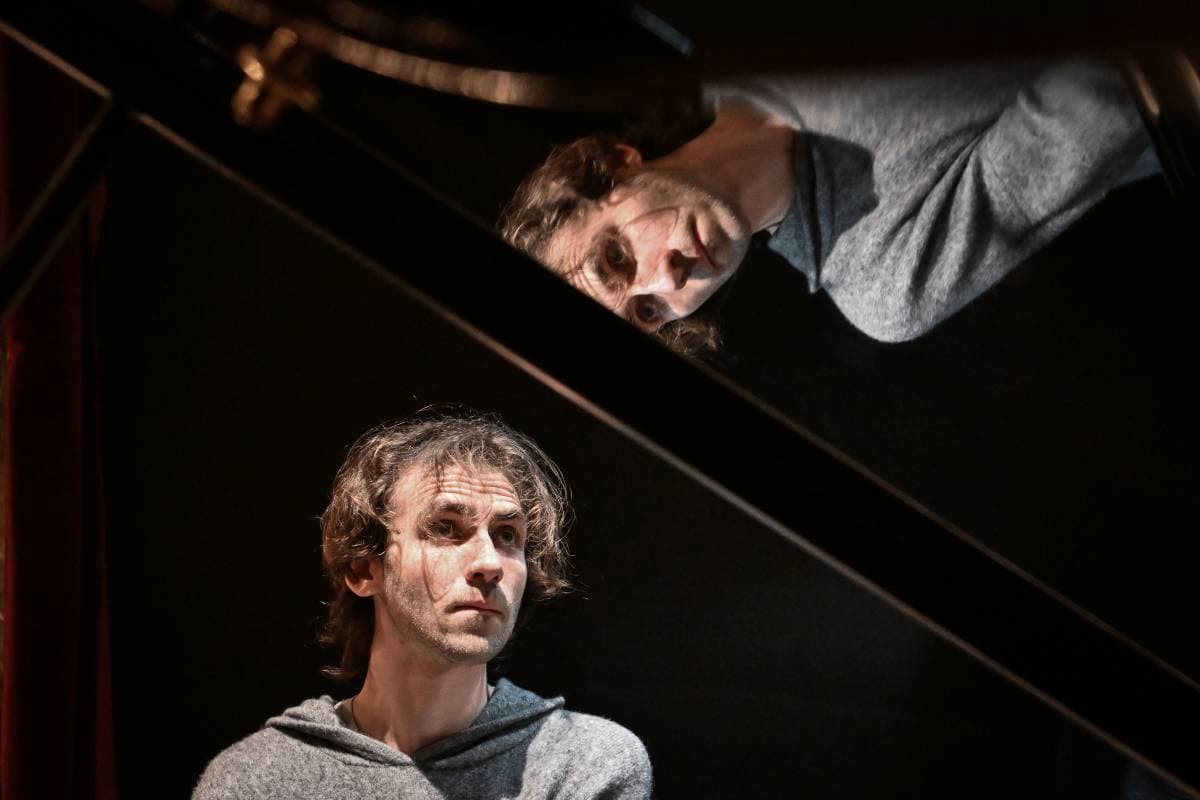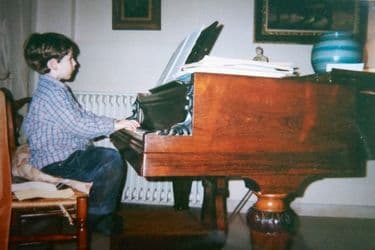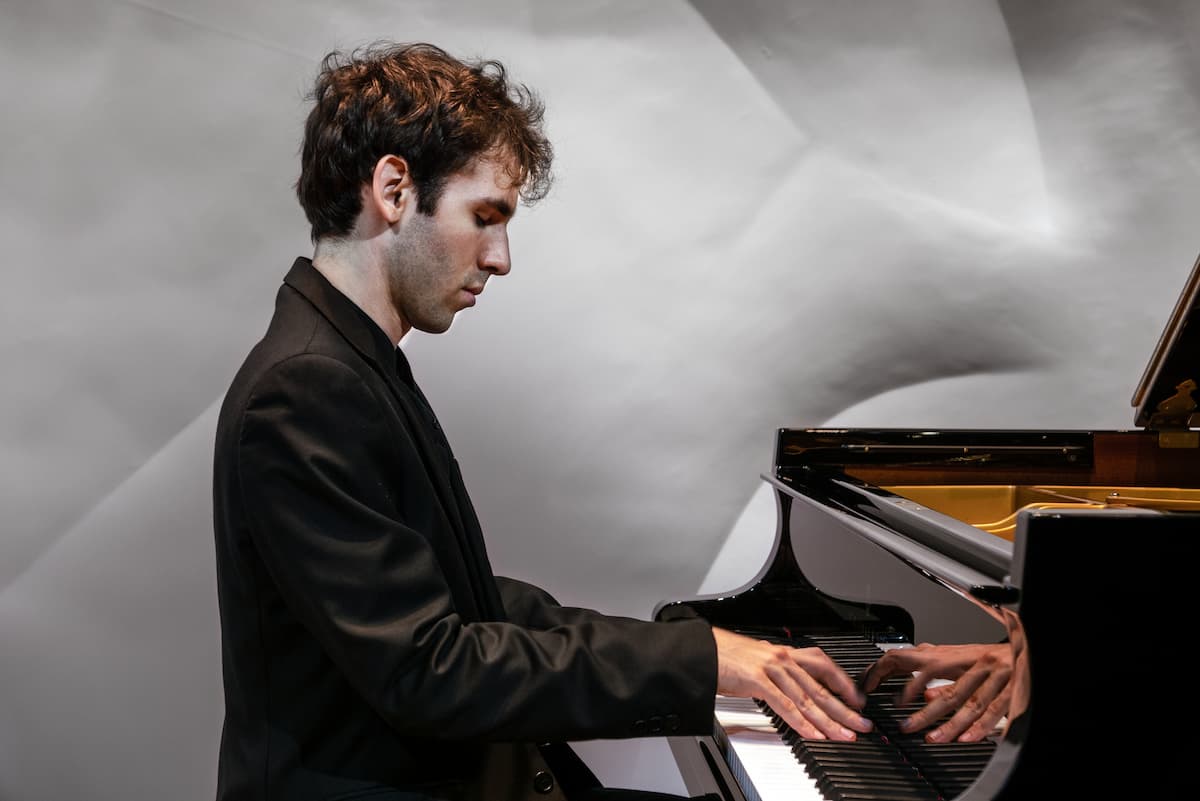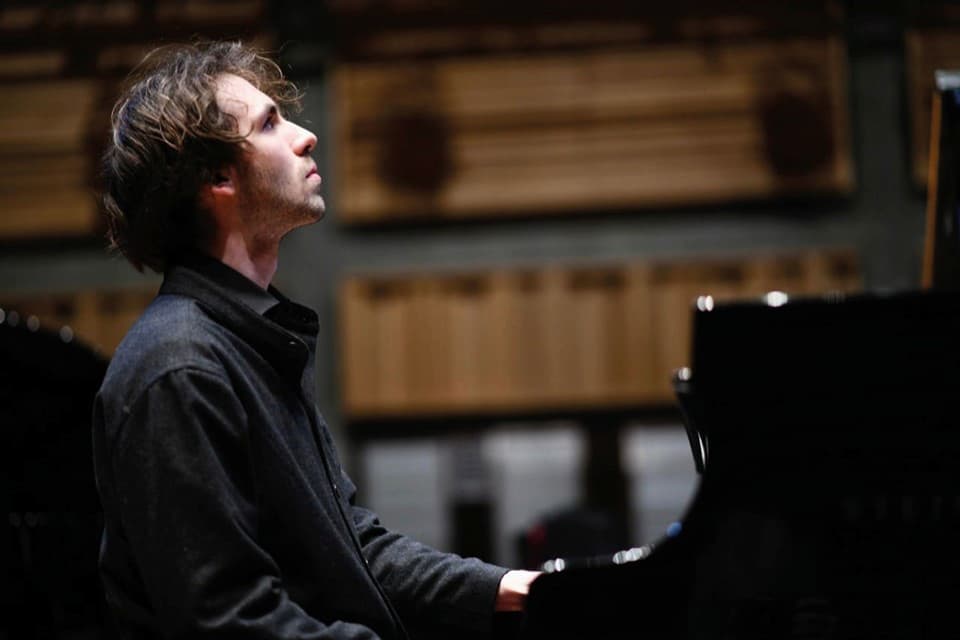In 2019, Alexandre Kantorow won the first prize, gold medal, and Grand Prix at the 16th International Tchaikovsky Competition, becoming the first French winner in the history of the competition. Kantorow struck the piano world with the impact of a rather large comet. He had completely bypassed the status of an up-and-coming star and played himself straight into the upper echelon of international soloists.
Alexandre Kantorow Performs Brahms’s Piano Concerto No. 2, Op. 83 “Allegro non troppo”
Musical Home

Alexandre Kantorow
Alexandre Kantorow was born on 20 May 1997 in the small French town of Clermont-Ferrand. Both his parents are musicians, with his mother playing the violin and his father Jean-Jacques, a well-known violinist and conductor. However, they never forced music on their son, and Alexandre spent a lot of time at the playground and not in the concert hall. He recalls, “We didn’t go to many concerts, and for years, playing the piano was basically something I enjoyed doing after school.”
Alexandre recalls that his parents were probably a little afraid that he would turn into a professional musician. “So for a long time,” he recalled, “we didn’t really live in the music world. I grew up in the suburbs and attended normal schools.” The family did have a piano at home, and Alexandre had always loved the instrument from an early age. As he related in an interview, “So my parents actually let me grow up in a world where music was approached in a more intuitive and playful way.”
Alexandre Kantorow Plays Liszt
First Concert

Alexandre Kantorow as a young boy
The family moved to Paris, and Alexandre attended a high school with a strong emphasis on music. He discovered the joy of making music with his co-students, and he played his first concert at the age of 14. He vividly remembers, “during rehearsals, I felt surrounded by many kindred souls for the first time.” The programme included Franz Liszt‘s Hungarian Fantasy for Piano and Orchestra, and the pianist really enjoyed the experience.
As he recalls, “I remember exactly the special feeling of going on to a big concert platform for the first time and forgetting everything around me. I suddenly knew without any doubt at all that this was what I wanted to do.” His love for the stage kept growing, and “I really wanted to get on the podium and play.”
Camille Saint-Saëns: Piano Concerto No. 5 in F Major, Op. 103, “Egyptian” (Alexandre Kantorow, piano; Tapiola Sinfonietta; Jean-Jacques Kantorow, cond.)
Piano Teachers

Alexandre started his piano studies at the age of five at the conservatory of Pontoise, located just outside of Paris. By age 11, Kantorow was a student of Pierre-Alain Volondat, who had won the 1983 Queen Elisabeth Competition in Belgium. Alexandre subsequently studied with Igor Lazko at the Schola Cantorum de Paris. Lazko quickly made him realise that playing the piano would not be just for fun. “I was late to the game and had a lot to catch up, with technique the hardest part as my fingers weren’t very strong.”
“I grew up with a mixture of French and Russian teachers,” he recalls, “with whom I still work today.” Alexandre developed a very strong bond with his Russian teachers, one that follows a very specific line of tradition going back to the time of Rachmaninoff. “That Russian tradition,” according to Kantorow, “is still intact and focuses a lot on sound.”
Pyotr Ilyich Tchaikovsky: 18 Morceaux, Op. 72 (excerpts) (Alexandre Kantorow, piano)
Post-Tchaikovsky

Kantorow also took lessons from Pierre-Laurent Aimard, whom he calls “a musical genius on the piano.” Aimard always has a creative world in his head, and “he is driven by a manic energy that makes everything he does effective and energetic.” Kantorow strongly believes that he met all his teachers at a good time in his life. “Maybe that mixed sound you hear from me comes from this whole mix of cultures and different ideas about music.”
And while he is thankful that the Tchaikovsky piano competition opened the doors to performances and recording contracts, he really doesn’t place a premium on the idea of competitions. Instead, he is constantly striving to evolve. “I think my greatest fear,” he explained, “is not evolving any longer, reaching a stalemate. I constantly have doubts about my playing.” The only cure, according to Kantorow, is to perform regularly. “It’s only once I am on stage that I’m able to put self-doubt behind me. At that moment, something else takes hold of me.”
For more of the best in classical music, sign up for our E-Newsletter
